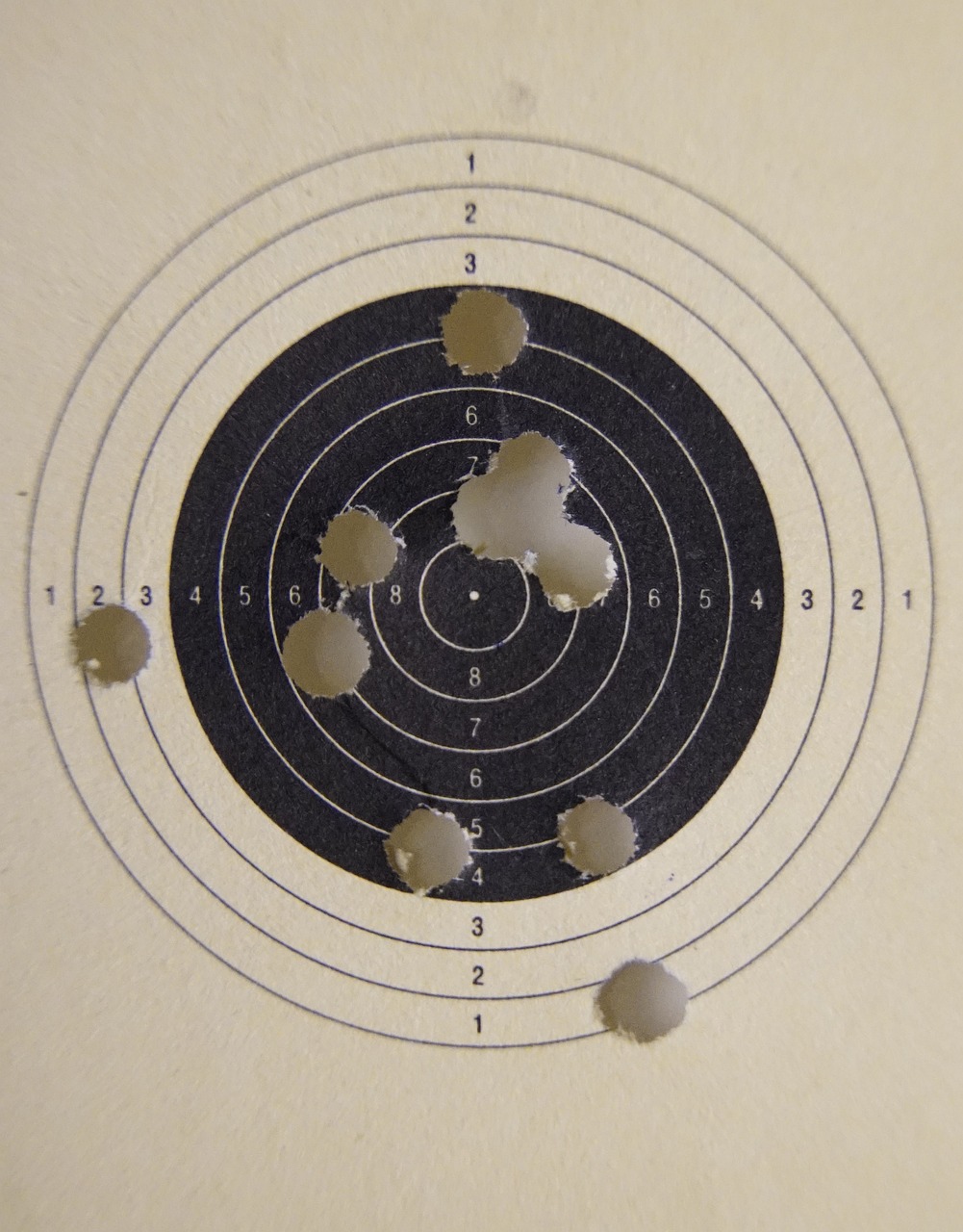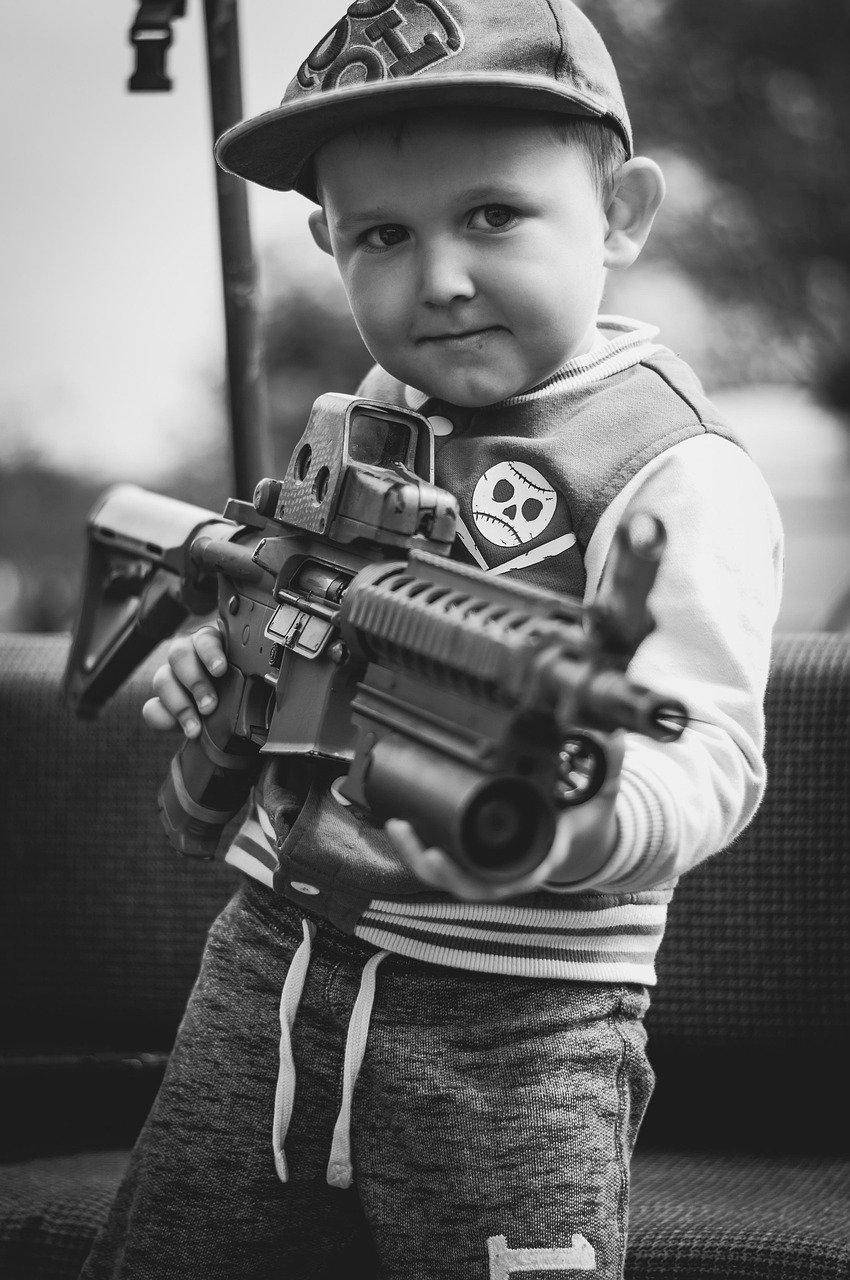AITA for refusing to give up my grandfather’s rifle to my brother?
 Image credit: Pixabay (This is example image – Not the actual photo)
Image credit: Pixabay (This is example image – Not the actual photo)
Family Heirlooms and Sibling Rivalry: A Heartfelt Dilemma
When a cherished family heirloom becomes the center of a sibling dispute, emotions run high and loyalties are tested. After receiving his grandfather’s beloved hunting rifle, a young man faces unexpected pressure from his older brother, who suddenly wants the rifle for his new gun collection. As family dynamics shift and tensions rise, the question of who truly deserves to honor their grandfather’s memory takes center stage. This relatable story touches on themes of nostalgia, familial bonds, and the complexities of inheritance in a modern American family.
Family Drama Over a Family Heirloom
A conflict has arisen within a family regarding a cherished heirloom, leading to tension and differing opinions on its rightful owner. The story revolves around a grandfather’s hunting rifle, which holds significant sentimental value for one family member.
- Background: The narrator shares a close bond with their grandfather, who played a pivotal role in their upbringing. The grandfather taught them essential skills such as hunting and firearm safety, fostering a deep appreciation for history and family traditions.
- Gift of the Rifle: Before passing away, the grandfather gifted the narrator his old hunting rifle, a family heirloom that has been passed down through generations. While the rifle may not hold substantial monetary value, its sentimental worth is immeasurable to the narrator.
- Brother’s Interest: The narrator’s older brother, who previously showed no interest in hunting or firearms, has recently taken up gun collecting as a hobby. He now desires the grandfather’s rifle to display in his home office.
- Initial Conflict: When the brother requested the rifle, the narrator declined, explaining the emotional significance it holds. The brother reacted with anger, claiming that as the eldest sibling, he should have inherited the rifle.
- Parental Involvement: The narrator’s mother sided with the brother, arguing that family heirlooms should be shared and that he wants to honor their grandfather’s memory. In contrast, the narrator’s father, who also shared hunting experiences with the grandfather, supported the narrator’s decision.
- Ongoing Tension: The disagreement has led to a rift between the siblings, with the brother now barely speaking to the narrator. The mother continues to make passive-aggressive remarks, labeling the narrator as selfish for not sharing the heirloom.
- Clarification on Value: In an edit, the narrator clarifies that the rifle is an early production Winchester 73 in .44-40, which holds value for collectors. However, for the narrator, the emotional connection and memories associated with the rifle far outweigh any monetary considerations.
- Legal Implications: The narrator also notes that the rifle is registered in their name, implying that if the brother were to take it, it could lead to legal consequences.
This family drama highlights the complexities of conflict resolution when it comes to sentimental items and differing perspectives on inheritance. The situation raises questions about ownership, respect for family traditions, and the importance of communication in resolving familial disputes.
This is Original story from Reddit
 Image credit: Pixabay (This is example image – Not the actual photo)
Image credit: Pixabay (This is example image – Not the actual photo)
Story
My grandfather was a huge part of my life growing up. He taught me how to hunt, respect firearms, and appreciate history. Before he passed away, he gifted me his old hunting rifle, which has been in our family for generations.
It’s not worth much money-wise, but the sentimental value is priceless to me. My older brother, 35M, was never into hunting or firearms. He even used to mock me and my grandpa for spending so much time outdoors.
But recently, he’s gotten into gun collecting as more of a hobby, and now he wants my grandpa’s rifle to display in his home office. When he asked for it, I said no. I told him this rifle means a lot to me because of the time I spent with our grandpa, and it’s not just a decoration to me.
He got mad and said that as the eldest, he should have inherited it. Our mom took his side, saying that I should be willing to share family heirlooms and that he just wants to honor Grandpa’s memory in his own way. Our dad, who went hunting with my grandpa and me, took my side.
Agreeing with my dad, I refused, saying he never cared about it until now, and I don’t want it collecting dust in his office when I actually use and cherish it. Now he’s barely speaking to me, and my mom keeps making passive-aggressive comments about me being selfish.
AITA?
EDIT: I feel like I’ve downplayed the price of the rifle. It’s an early production Winchester 73 in .44-40, so to a collector, it’s worth a good amount, but for this gun, I don’t view it as a collection piece. I do build firearms and have two upwards of 5k that are considered relic WWII M1 Garand and Vietnam War M14.
But with those, I acknowledge the value. I can’t see monetary value in my grandpa’s rifle because I grew up hunting with it; it was shot every range trip I went on with my grandpa. All that overshadows the monetary value of the rifle.
EDIT: The serial number is in my name. If my brother takes it, it’s a felony with a minimum of 10 years.
View the Original Reddit Post Here
Summary of Reddit Comments
The top Reddit comments indicate a strong consensus that the original poster (OP) is not at fault (NTA) for keeping the rifle gifted to them by their grandfather. Users emphasize that the rifle was a personal gift, not part of the estate, and that family members should respect the grandfather’s wishes rather than attempt to manipulate the situation. Many commenters advise OP to firmly assert their ownership and disregard any passive-aggressive behavior from family members.
Verdict: NTA
Expert Advice for Resolving Family Conflict Over Heirlooms
Family disputes over cherished heirlooms can be emotionally charged and complex. Here are some practical steps to help navigate this situation while addressing both sides’ feelings and perspectives.
Steps for the Narrator (OP)
- Communicate Openly: Arrange a calm and private conversation with your brother. Express your feelings about the rifle and why it holds such significance for you. Use “I” statements to avoid sounding accusatory, such as “I feel a deep connection to our grandfather through this rifle.”
- Reiterate the Gift: Remind your brother that the rifle was a personal gift from your grandfather to you. Emphasize that it was not part of the estate and that your grandfather intended for you to have it.
- Seek Understanding: Ask your brother about his newfound interest in gun collecting. Show genuine curiosity about his hobby, which may help bridge the gap between you two and foster mutual respect.
- Set Boundaries: Politely but firmly assert your ownership of the rifle. Let your family know that while you understand their feelings, you are not willing to part with it.
- Consider Compromise: If appropriate, suggest a compromise, such as allowing your brother to borrow the rifle for display on special occasions or family gatherings, while still retaining ownership.
Steps for the Brother
- Reflect on Feelings: Take time to consider why the rifle is important to you now. Acknowledge your brother’s emotional connection to the heirloom and the memories associated with it.
- Communicate Respectfully: Approach your brother with an open mind. Share your interest in the rifle and why you believe it should be in your possession, but do so without anger or entitlement.
- Listen Actively: Be willing to listen to your brother’s perspective. Understanding his feelings may help you find common ground and reduce tension.
- Consider the Bigger Picture: Recognize that family relationships are more important than material possessions. Reflect on how this conflict may affect your relationship with your brother and family in the long run.
Steps for the Parents
- Stay Neutral: As parents, it’s essential to remain neutral and avoid taking sides. Encourage open dialogue between your children without imposing your opinions.
- Facilitate Communication: Offer to mediate a conversation between your children if they are open to it. Help them express their feelings and concerns in a constructive manner.
- Encourage Empathy: Remind both children of the importance of family bonds and the memories associated with their grandfather. Encourage them to consider each other’s feelings and perspectives.
Ultimately, resolving this conflict will require patience, understanding, and a willingness to communicate openly. By taking these steps, both sides can work towards a resolution that honors their grandfather’s memory while preserving family relationships.
Join the Discussion
 Image credit: Pixabay (This is example image – Not the actual photo)
Image credit: Pixabay (This is example image – Not the actual photo)
What do you think? Would you have handled this differently?
Share your thoughts below! Vote: Do you agree with Reddit’s verdict?










